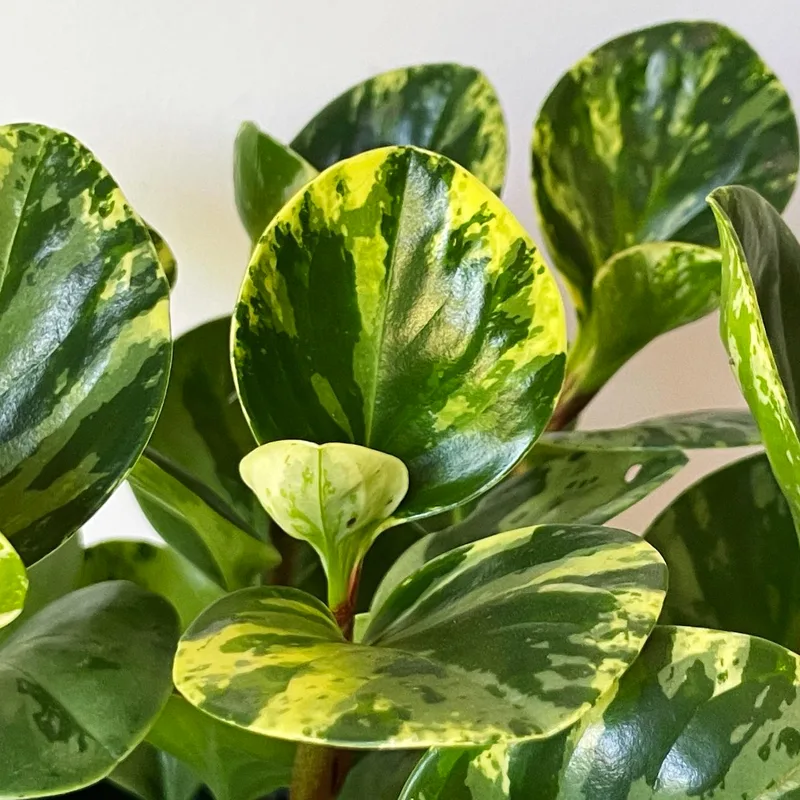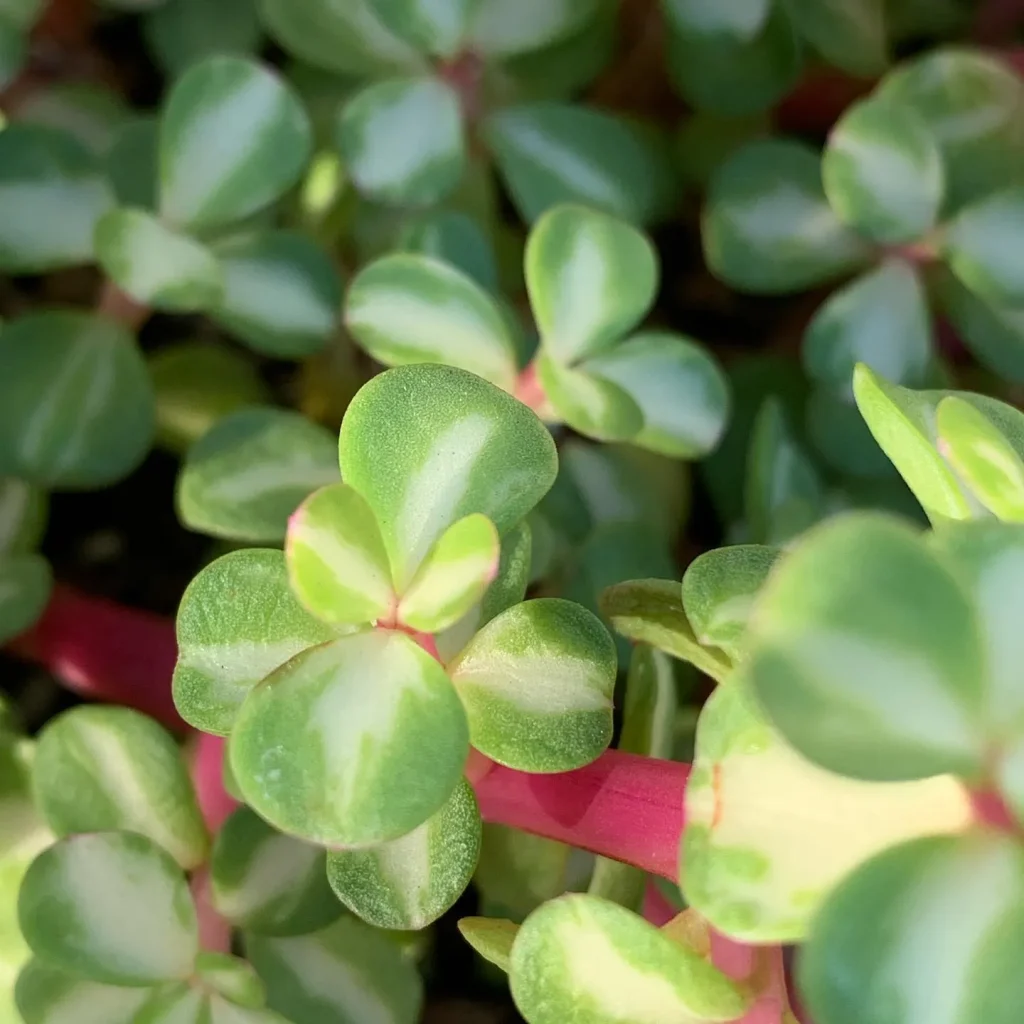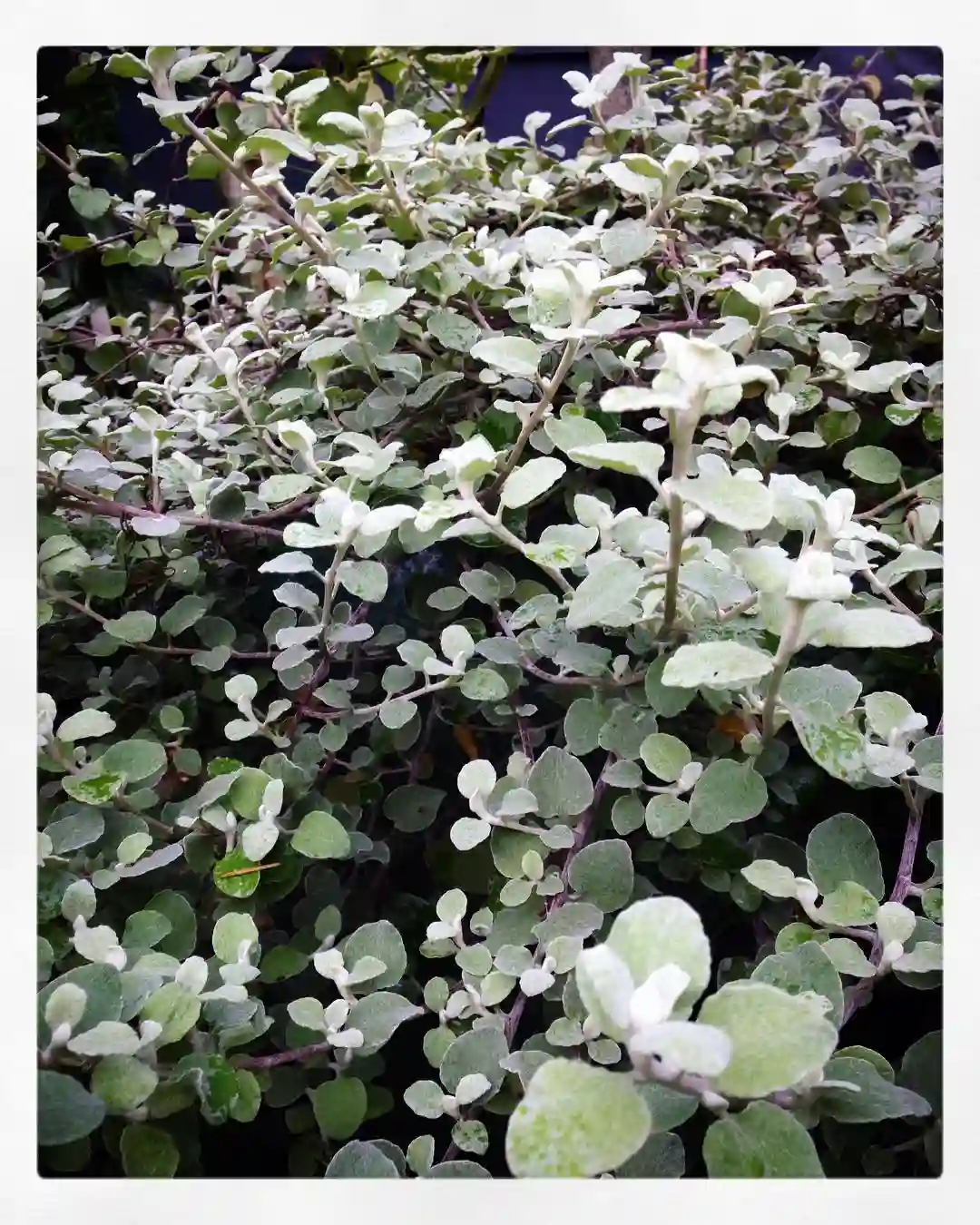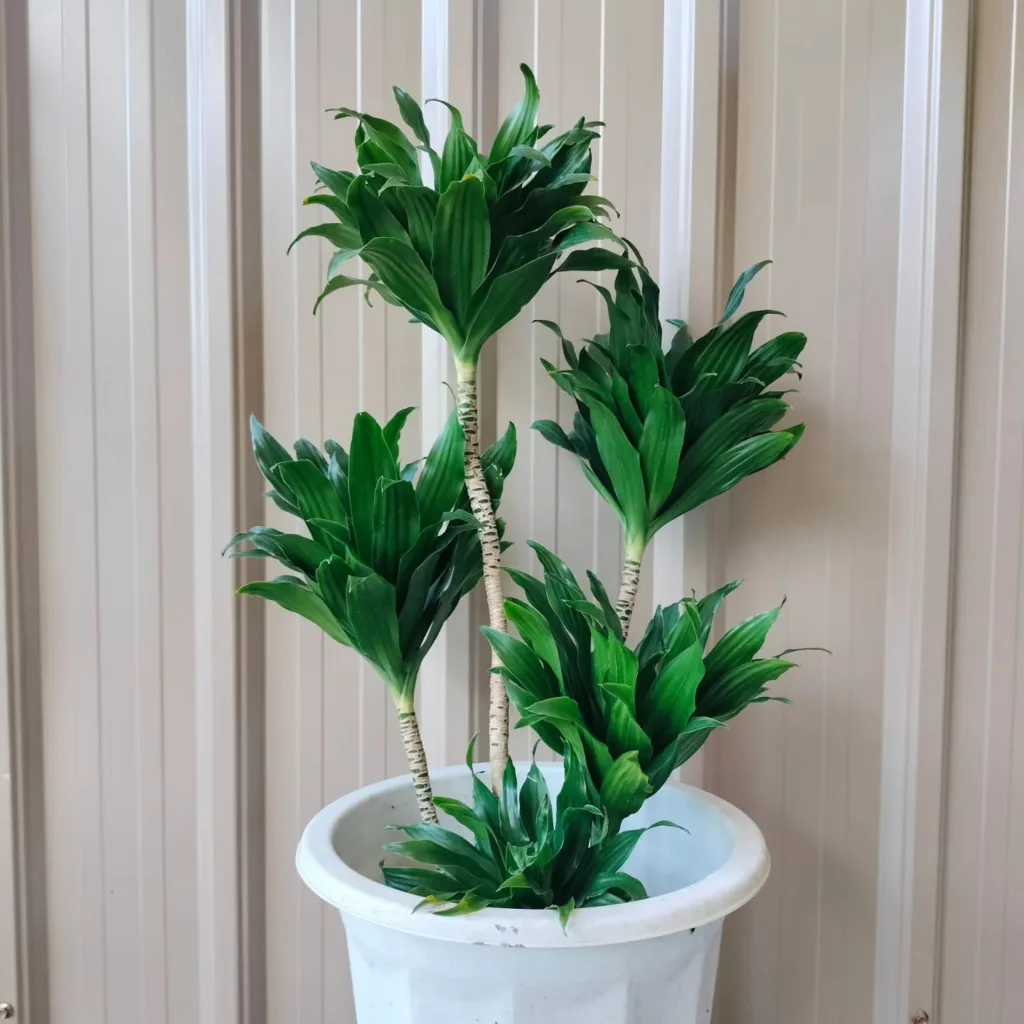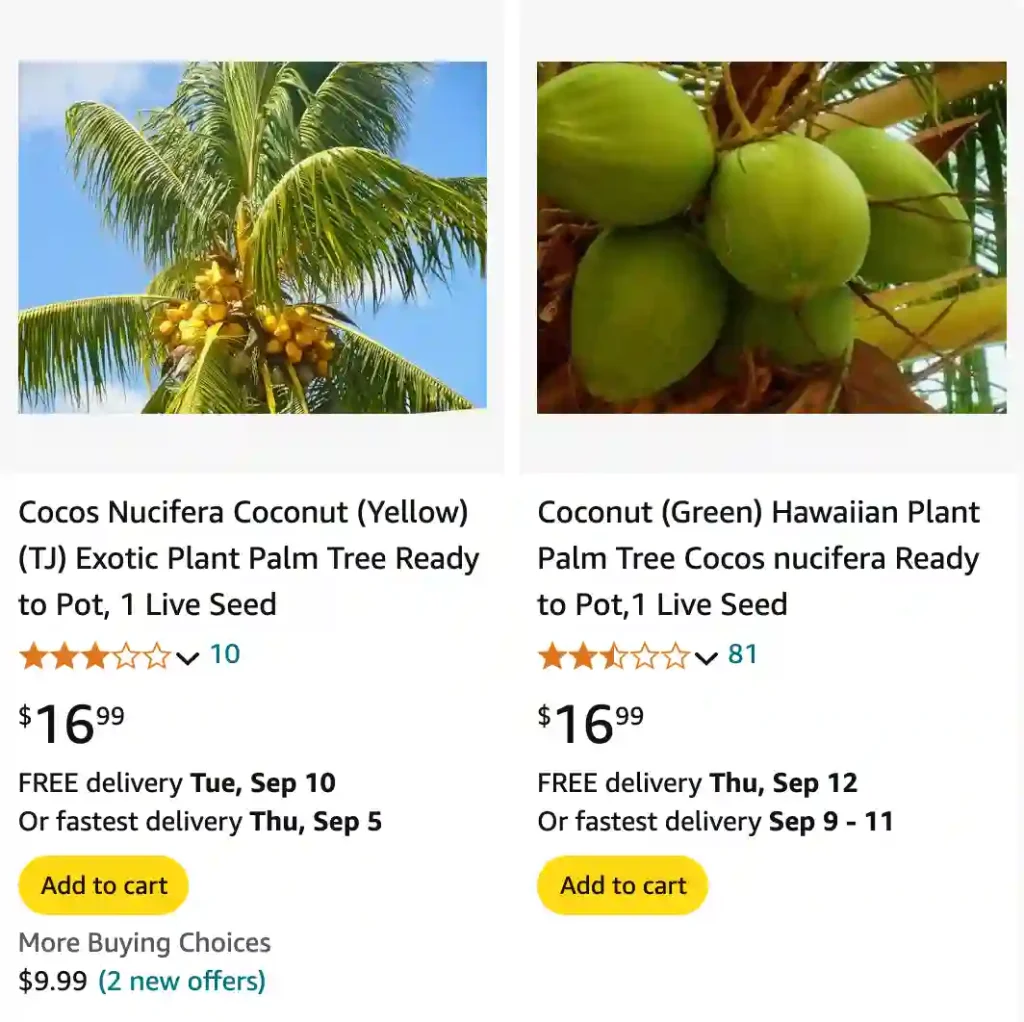
April 11 – Cocos
"Cocos, the coconut tree, represents April 11."
The coconut tree stands for resourcefulness and generosity. You are nurturing and creative, always finding ways to make the most of what you have. Like this tree, you provide sustenance and inspiration.
What is Cocos Nucifera?
When I think of the plant genus Cocos, the first thing that comes to mind is the iconic coconut palm, Cocos Nucifera. As someone fascinated by plant diversity, I’ve found the Cocos genus to be uniquely captivating. From its ecological impact to its wide range of uses in both traditional and modern contexts, the Cocos genus has a lot to offer, and Cocos Nucifera, or the coconut palm, stands at the center of it all.
The Cocos genus belongs to the Arecaceae family, commonly known as the palm family. It is native to tropical regions and is a quintessential part of coastal landscapes across the world. But what really intrigues me about the genus is its adaptability and economic significance, especially within tropical cultures. It has become one of the most versatile plant groups, providing essential resources like food, shelter, and raw materials for crafting. It’s even earned the nickname “the tree of life,” a title that reflects just how integral it is to daily life in many tropical regions.
Though Cocos is a monotypic genus—meaning it includes only one species, Cocos Nucifera—this species alone embodies an incredible spectrum of uses and benefits. I’ve come to appreciate how this single species can be so resourceful and foundational in countless ways, from agricultural applications to eco-friendly manufacturing.
Is coconut a tree nut?
The whole coconut thing is confusing! I always thought of it as a fruit because of the coconut water and flesh inside. But then I learned it’s labeled as a tree nut by the FDA. That doesn’t sit right with me since it grows on a palm tree, not like a walnut or pecan. Thankfully, I haven’t had any problems enjoying coconut in curries or piña coladas, even though I have friends with nut allergies. Maybe it’s because it’s technically a fruit? It’s just weird!
Is Cocos Nucifera Good for Hair?
Cocos Nucifera oil is often celebrated for its benefits to hair. It is rich in fatty acids and vitamins that can help nourish and strengthen hair. Regular application can lead to softer, shinier hair and reduce split ends. It also has moisturizing properties that can help with dry scalp issues. For those looking to enhance their hair care routine, incorporating Cocos Nucifera oil can be a natural and effective solution.
Is Cocos Nucifera Good for Skin?
Yes, Cocos Nucifera is generally beneficial for the skin. It is known for its moisturizing properties and can help improve skin hydration. The oil contains antioxidants and anti-inflammatory compounds that may aid in soothing irritated skin and reducing signs of aging. However, due to its comedogenic nature, it’s important to use it cautiously, particularly if you are prone to acne or have oily skin.
Do coconuts grow on palm trees?
Absolutely! It’s always so cool to look up and see those massive coconuts hanging from the top of towering palm trees. They look so exotic and remind me of a tropical vacation. It’s a little scary to think about one falling on my head, but I still love the way they make a beach scene picture-perfect. Now whenever I see a palm tree, I always try to spot any developing coconuts way up in the leaves.
How do you grow coconut trees?
Honestly, I’ve never grown a coconut tree myself. We don’t have the right climate here for that, it’s far too cold in the winter. But I’ve always been fascinated by them! From what I’ve read, it sounds like quite a process. You need a fresh coconut, still in the husk, and it takes months for it to germinate. Then there’s all the attention it needs to become a proper tree – warm temperatures, lots of sunlight, and sandy soil. Maybe one day, if I move somewhere tropical, I’ll try my hand at it – it would be amazing to have fresh coconuts in my own backyard!
Where does coconut tree grow?
Coconut trees thrive in tropical and subtropical climates, particularly along coastlines. They love warm temperatures, lots of sunlight, and the sandy, well-drained soil you typically find near the ocean. Here are some places where you’ll find lots of coconut trees:
Southeast Asia: Countries like Indonesia, the Philippines, and Thailand are major coconut producers.
The Pacific Islands: Think of those idyllic scenes of palm trees swaying over white sand beaches!
The Caribbean: Coconut trees are an iconic part of Caribbean landscapes.
Tropical parts of Africa and South America: You’ll find coconut groves along coastlines in these regions as well.
Are palm trees and coconut trees the same?
It’s a bit tricky! All coconut trees are palm trees, but not all palm trees are coconut trees. See, palm trees are a whole family of plants, and there are tons of different species. The coconut tree, with its iconic big coconuts, is just one specific type within that family. Other palm trees might have smaller fruits, like dates, or no fruits at all. So, you could say that a coconut tree is a special kind of palm tree.
How to climb a coconut tree?
I have to admit, the idea of climbing a coconut tree myself is a bit intimidating! Those trees can get really tall, and it looks like it requires a lot of strength and agility. I’ve seen videos of people in tropical areas who make it look so effortless, scaling up those trunks with amazing speed. Apparently, there are different techniques – some use special contraptions with foot loops, and others climb with their bare feet and hands. If I ever find myself in a place with coconut trees and have the urge to give it a try, I’d definitely want to learn from a local expert first!
How to grow coconut tree faster?
While I wish there was a magic trick to make coconut trees grow super fast, it does take time and patience. But there are definitely things you can do to give your tree the best chance to thrive and reach its full potential more quickly:
Choose the Right Variety: Some types of dwarf coconut trees are naturally faster-growing than others.
Plant in the Right Spot: Coconut trees need lots of sunshine and warm temperatures year-round. Sandy, well-draining soil is a must, too.
Proper Care is Key: Regular watering (especially when they’re young), fertilizing, and keeping an eye out for pests and diseases all contribute to healthy growth.
Even with ideal conditions, it may still take a few years for your coconut tree to begin producing fruit. But hey, the anticipation of those fresh coconuts makes it all worth it!
What animals eat coconut trees?
Surprisingly, there aren’t a whole lot of animals that munch on the coconut tree itself. However, there are a few critters that love to feast on the delicious coconuts:
Coconut Crabs: These big, impressive crabs have powerful claws that can crack open coconuts to get to the tasty flesh inside.
Monkeys: Some species of monkeys love climbing coconut trees and using their smarts to open the tough nuts.
Rats: These crafty rodents can gnaw their way into a coconut to access the sweet reward inside.
Parrots: Some parrots use their strong beaks to break through the outer layers of a coconut.
Also, insects might find their way into the leaves or softer parts of the tree, causing damage. But the real coconut-lovers are the ones that go after the yummy fruit itself!
Are there coconut trees in Florida?
Yes, there are definitely coconut trees in Florida! They’re a common sight in the southern parts of the state, especially along the coastlines. The warm, sunny Floridian climate is pretty hospitable to these tropical trees.
You’ll often see them lining beaches, adding to that classic tropical vacation vibe, or used in landscaping around homes and resorts. While they’re not native to Florida, coconut trees have become a beloved part of the landscape.
Can coconut trees grow in California?
Coconut trees can be tricky to grow in California. It’s mostly because they’re true tropical plants and need warm temperatures year-round. Most of California gets too cold in the winter for coconut trees to truly thrive.
However, there are some exceptionally warm microclimates in Southern California where you might find a few brave coconut trees growing. Usually, these are in protected spots like courtyards or along the immediate coast where there’s some buffering from the cooler temperatures. But for the most part, California’s climate isn’t quite right for widespread coconut tree cultivation.
Are there coconut trees in Hawaii?
Absolutely! Coconut trees are an iconic part of the Hawaiian landscape. You’ll find them swaying in the breeze along beaches, lining streets, and even growing in people’s backyards. They’re so prevalent that the coconut palm is even nicknamed the “Tree of Life” in Hawaii.
Coconut trees weren’t originally native to Hawaii, but Polynesian voyagers brought them over centuries ago. Now, they’re deeply woven into Hawaiian culture, providing food, drink, and materials for all sorts of traditional uses.
How fast do coconut palm trees grow?
Coconut palm trees grow at a moderate pace. Under ideal conditions, they can add about 1-2 feet of height per year. However, several things can affect their growth rate:
Variety: Some types of dwarf coconut trees grow faster than the taller varieties.
Climate: Coconut palms need consistently warm temperatures and lots of sunlight to really thrive.
Soil: Sandy, well-draining soil is crucial.
Care: Regular watering and fertilization will help with strong, healthy growth.
While it takes a few years for the tree to start producing coconuts (usually 5-10!), that steady growth means you’ll be enjoying those delicious fruits for years to come.
How to stop coconut tree from growing?
While you can’t completely stop a coconut tree from growing, there are a few things you can do to manage its size and fruit production:
Choose a Dwarf Variety: If you’re planting a new coconut tree, opt for a dwarf variety. These naturally stay smaller and will be less of a concern height-wise.
Regular Pruning: Removing old fronds and dead leaves helps keep the tree healthy but won’t significantly impact its growth.
Removing Flowers and Young Coconuts: This is the most effective way to slow vertical growth. It prevents the tree from putting energy into producing fruit and seeds, allowing it to focus more on leaf growth. However, this means you won’t be getting any coconuts from that tree.
Important Note: If you’re concerned about the height of a coconut tree, especially near structures or powerlines, it’s strongly recommended to consult with a professional arborist. They can assess the situation and offer safe and effective solutions.
Coconut vs Avocado
While both coconut and avocado are tropical delights, they cater to different cravings. The coconut’s water quenches my thirst on a hot day, while its flesh satisfies my sweet tooth. Avocado, on the other hand, is a savory superstar. I love the creamy texture and rich flavor it adds to my guacamole or salads. It’s more of a meal than a snack, unlike the coconut.
Coconut vs Banana
Coconut and banana, two tropical staples, couldn’t be more different. The coconut is a versatile powerhouse, offering everything from refreshing water to solid meat. I’ve used coconut milk in countless curries and desserts. Bananas, while convenient and sweet, are more one-dimensional to me. They’re great for a quick energy boost, but they lack the complexity and depth of flavor that a coconut provides.
What is Cocos Nucifera?
When I think of the plant genus Cocos, the first thing that comes to mind is the iconic coconut palm, Cocos Nucifera. As someone fascinated by plant diversity, I’ve found the Cocos genus to be uniquely captivating. From its ecological impact to its wide range of uses in both traditional and modern contexts, the Cocos genus has a lot to offer, and Cocos Nucifera, or the coconut palm, stands at the center of it all.
The Cocos genus belongs to the Arecaceae family, commonly known as the palm family. It is native to tropical regions and is a quintessential part of coastal landscapes across the world. But what really intrigues me about the genus is its adaptability and economic significance, especially within tropical cultures. It has become one of the most versatile plant groups, providing essential resources like food, shelter, and raw materials for crafting. It’s even earned the nickname “the tree of life,” a title that reflects just how integral it is to daily life in many tropical regions.
Though Cocos is a monotypic genus—meaning it includes only one species, Cocos Nucifera—this species alone embodies an incredible spectrum of uses and benefits. I’ve come to appreciate how this single species can be so resourceful and foundational in countless ways, from agricultural applications to eco-friendly manufacturing.
Is Cocos Nucifera Comedogenic?
When it comes to skincare, the term “comedogenic” describes substances that can clog pores and potentially lead to acne. Cocos Nucifera, or coconut oil, is known for being moderately comedogenic. This means it has the potential to clog pores for some individuals, especially those with oily or acne-prone skin. If you have sensitive skin or are prone to breakouts, it might be wise to perform a patch test or consult a dermatologist before using products containing Cocos Nucifera.
Is Cocos Nucifera Good for Hair?
Cocos Nucifera oil is often celebrated for its benefits to hair. It is rich in fatty acids and vitamins that can help nourish and strengthen hair. Regular application can lead to softer, shinier hair and reduce split ends. It also has moisturizing properties that can help with dry scalp issues. For those looking to enhance their hair care routine, incorporating Cocos Nucifera oil can be a natural and effective solution.
Is Cocos Nucifera Good for Skin?
Yes, Cocos Nucifera is generally beneficial for the skin. It is known for its moisturizing properties and can help improve skin hydration. The oil contains antioxidants and anti-inflammatory compounds that may aid in soothing irritated skin and reducing signs of aging. However, due to its comedogenic nature, it’s important to use it cautiously, particularly if you are prone to acne or have oily skin.
Is Cocos Nucifera the Same as Coconut Oil?
Yes, Cocos Nucifera and coconut oil are essentially the same thing. “Cocos Nucifera” is the scientific name for the coconut palm, and the oil extracted from its fruit is commonly referred to as coconut oil. This oil is used in a variety of products ranging from cooking to skincare and haircare.
What is Cocos Nucifera Oil?
Cocos Nucifera oil is the oil extracted from the flesh of the coconut fruit. It is a versatile substance used in cooking, as a moisturizer, and in various cosmetic products. This oil is valued for its hydrating properties, high content of medium-chain fatty acids, and its ability to improve skin and hair health. It can be found in both refined and unrefined forms, with the unrefined version retaining more of its natural nutrients and flavor.
What is Cocos Nucifera Used For?
Cocos Nucifera has a multitude of uses. In the culinary world, it’s used for cooking and baking due to its high smoke point and rich flavor. In skincare, it is employed for its moisturizing and anti-inflammatory properties, often found in lotions, creams, and soaps. In haircare, it helps with moisturizing and conditioning. Additionally, Cocos Nucifera oil can be used as a natural remedy for various health conditions and as a base for homemade beauty products.
Do Cocos Nucifera Nuts Go from Green to Yellow?
Yes, Cocos Nucifera nuts do change color as they mature. Initially, the coconut is green and contains a lot of water, which is often consumed as coconut water. As it matures, the coconut changes to a brown, fibrous shell. The outer husk also changes color, transitioning from green to yellow or brown.
Does Cocos Nucifera Oil Clog Pores?
Cocos Nucifera oil can potentially clog pores due to its comedogenic nature. For those with oily or acne-prone skin, it’s important to be cautious when using this oil. Performing a patch test and observing how your skin reacts can help determine if it is suitable for you.
Is Cocos Nucifera Safe?
Cocos Nucifera oil is generally considered safe for most people when used properly. It has been used for centuries in various cultures for its health benefits. However, individuals with coconut allergies or those who experience adverse reactions should avoid it. As with any new product, it’s advisable to do a patch test to ensure there are no allergic reactions.
Is the Malaysian Coconut Palm Different from Cocos Nucifera?
The Malaysian Coconut Palm is not different from Cocos Nucifera; it is actually a variety of Cocos Nucifera. There are different cultivars and varieties within the Cocos Nucifera species, each adapted to different climates and uses. The Malaysian Coconut Palm refers to a specific variety that is well-suited to the tropical environment of Malaysia.
How to Care for Cocos Nucifera?
Caring for a Cocos Nucifera palm requires a warm, tropical environment with plenty of sunlight. Regular watering and well-draining soil are essential. Ensure the palm is protected from frost and extreme cold. Fertilization can help promote healthy growth, and occasional pruning can keep the palm looking its best.
How to Propagate Cocos Nucifera?
Propagation of Cocos Nucifera is typically done from seeds. The seeds, or coconuts, should be planted in well-draining soil and kept in a warm, sunny location. It can take several months for the seeds to germinate, and patience is key. Regular watering and proper care will support successful propagation.
Can You Grow Cocos Nucifera Indoors?
Growing Cocos Nucifera indoors can be challenging due to its need for ample sunlight and space. It generally prefers outdoor tropical environments, but with the right conditions—such as sufficient light and a large pot—it is possible to grow a coconut palm indoors. However, it may not reach its full potential or produce fruit indoors.
Is Cocos Nucifera Toxic?
Cocos Nucifera is not considered toxic. The coconut itself is edible and widely used in various culinary applications. The oil and other products derived from Cocos Nucifera are safe for most people. However, individuals with specific allergies should exercise caution and consult with a healthcare professional if they have concerns.
In conclusion, Cocos Nucifera is a remarkable and versatile plant with a variety of uses in our daily lives. Whether for culinary, cosmetic, or health purposes, its benefits are well-recognized. However, like any product, it’s important to use it appropriately and be mindful of individual sensitivities.
If i die, water my plants!
